As a BetterHelp affiliate, we receive compensation from BetterHelp if you purchase products or services through the links provided
The question of whether anxiety is a neurodivergent condition has intrigued many people. Neurodivergence generally refers to the natural variations in an individual’s cognitive functioning, which may differ from what is considered “typical.” Commonly recognized neurodivergent conditions include ADHD, autism, and learning disabilities. Anxiety, on the other hand, is an emotional response to stress or perceived threats.
While anxiety is not necessarily considered a neurodivergent disorder, it can manifest differently in individuals with neurodivergent conditions. These unique manifestations and challenges can lead some people to wonder where the line is drawn when discussing anxiety within the context of neurodiversity. In this article, we will explore the debate surrounding anxiety as a possible neurodivergent condition and delve into the various challenges and abilities of neurodivergent individuals.
Key Takeaways
- Neurodivergence encompasses a variety of cognitive differences, including ADHD and autism.
- Anxiety is not inherently a neurodivergent condition but can manifest uniquely in neurodivergent individuals.
- Understanding the relationship between anxiety and neurodivergence can help improve support and therapy options.
 Understanding Neurodivergence
Understanding Neurodivergence
Origin and History
Neurodivergence is a term that refers to the natural diversity in human brain function and behavior. This concept acknowledges that people’s brains may process information, learn, and behave differently from what is “typical.” The term “neurodivergent” describes individuals whose brain differences affect how their brain works, resulting in distinct strengths and challenges.
Australian sociologist Judy Singer first introduced the concept of neurodiversity in the 1990s. It was introduced as an alternative to pathologizing language that often described atypical ways of thinking and behaving as deficits or disorders. Neurodiversity is grounded in the idea that there is no one “normal” way for a brain to function, and it seeks to celebrate and validate the unique qualities of neurodivergent individuals.
Here are some important points to remember about neurodivergence:
- “Neurotypical” describes people whose brains function within societal expectations and norms.
- Neurodivergence is part of the broader term “neurodiversity,” which recognizes that neurological differences should be acknowledged and respected.
- Neurodivergence can include various conditions, such as autism, ADHD, and dyslexia.
- The neurodivergence theory emphasizes that brain differences should be considered part of human variation and not treated as problematic or needing fixing.
While neurodivergent individuals can face challenges, they also possess strengths and abilities that greatly benefit society. Understanding and embracing neurodivergence can help promote a more inclusive and supportive environment for everyone.
Different Neurodivergent Conditions
Neurodivergence encompasses various conditions that affect how a person’s brain functions. In this section, we will explore several common neurodivergent conditions:
Autism Spectrum Disorder
Autism Spectrum Disorder (ASD) is a neurodevelopmental disorder characterized by difficulties in social interaction, communication, and repetitive behaviors. People with ASD can also have sensory processing issues, with heightened sensitivity to certain stimuli like sounds, touch, and lights. Some tips to support someone with ASD include:
- Providing clear and concise instructions
- Allowing for extra processing time
- Ensuring a calm and structured environment
 Attention Deficit Hyperactivity Disorder
Attention Deficit Hyperactivity Disorder
Attention Deficit Hyperactivity Disorder (ADHD) is characterized by inattention, impulsivity, and hyperactivity. People with ADHD may have trouble organizing tasks, focusing on details, and managing time. Here are some tips to help someone with ADHD:
- Establishing routines
- Breaking down tasks into small steps
- Using visual aids and reminders
Dyslexia
Dyslexia is a learning disorder that affects a person’s reading, writing, and spelling abilities. It is mainly caused by an issue in processing language in the brain. Some strategies that might be helpful for dyslexic individuals include:
- Utilizing audiobooks or text-to-speech software
- Focusing on phonics and spelling patterns
- Creating visual maps or outlines to organize information
Dyspraxia
Dyspraxia, also known as Developmental Coordination Disorder, is a condition that impacts motor skills, coordination, and executive functioning. People with dyspraxia may struggle with tasks requiring fine motor skills, such as writing or tying shoelaces. Helpful strategies for someone with dyspraxia include:
- Implementing Occupational Therapy techniques
- Breaking tasks into smaller steps
- Using checklists and visual reminders
Tourette Syndrome
Tourette Syndrome is a neurodevelopmental disorder characterized by involuntary movements and vocalizations called tics. While there isn’t a cure for Tourette’s, some strategies to help manage symptoms include:
- Deep breathing exercises and relaxation techniques
- Regular physical activity to channel energy
- Providing a supportive and understanding environment
Dyscalculia
Dyscalculia is a learning disorder specifically related to the understanding and processing mathematical concepts. People with dyscalculia may struggle with basic math functions, recognizing patterns, and organizing numbers. To support individuals with dyscalculia, consider:
- Using visual aids like number lines or grids
- Incorporating real-life examples and practical applications of math concepts
- Providing extra time during exams
 Anxiety as a Neurodivergent Condition
Anxiety as a Neurodivergent Condition
Understanding Anxiety Neurodivergent
Anxiety, in itself, is often considered a mental health condition. However, it can also be viewed as neurodivergent when it significantly impacts a person’s brain function and daily life. Anxiety neurodivergent refers to the neurological differences in the brain, which can manifest through various symptoms such as panic attacks, shortness of breath, social anxiety, and generalized anxiety disorder. These symptoms can affect your emotions, thought patterns, and social skills, making it challenging to navigate everyday activities.
The concept of neurodiversity suggests that anxiety is just one of many brain differences within the human population. Being neurodivergent with anxiety means your brain handles emotions and anxiety uniquely compared to neurotypical individuals. Some common characteristics of anxiety neurodivergent may include:
- Persistent feelings of worry or fear
- Physical symptoms like shortness of breath, nausea, or dizziness
- Overthinking or rumination
- Difficulties with social interaction or communication
Comorbidity with Other Neurodivergent Conditions
It’s important to note that anxiety disorders can often co-occur with other neurodivergent conditions. You may experience comorbidity, a term used to describe the presence of more than one mental illness or neurological condition in your life. For example, generalized anxiety disorder might co-exist with ADHD, autism, or other mood disorders, which can further impact your overall mental health and brain functions.
People with comorbid conditions often face additional challenges in their daily lives, as the symptoms of each condition can overlap and intensify one another. This could lead to increased social difficulties, emotional struggles, and challenges in coping with both conditions simultaneously. In these cases, seeking appropriate support and treatment is crucial to help manage the various nuances of your mental health and neurodivergent condition.
 Challenges and Abilities of Neurodivergent Individuals
Challenges and Abilities of Neurodivergent Individuals
Learning and Processing Challenges
As a neurodivergent individual, you may face some challenges in learning and processing information. These can include:
- Dysgraphia: Difficulty with writing can impact your ability to express your thoughts.
- Attention and hyperactivity: Struggles with focusing and staying on task, often linked to ADHD.
- Comorbid difficulties: The co-occurrence of other conditions, such as anxiety, alongside neurodivergence, may compound the challenges.
- Sensory input: Processing a high degree of sensory information, causing sensory overload and distress.
- Social communication: Interpreting and responding to social cues can lead to social difficulties.
These challenges can arise from unique brain processes and environmental factors, making it essential to find effective coping mechanisms.
Strengths and Abilities
Despite the challenges, neurodivergent individuals possess a variety of strengths and abilities, such as:
- Pattern recognition: The ability to identify patterns and make predictions that others might miss.
- Memory: Exceptional memory skills, enabling them to retain information for long periods.
- Creative problem-solving: A talent for connecting seemingly unrelated concepts to find innovative solutions.
- Cognitive interests: A strong passion for specific activities that can help you excel in those areas.
- Repetitive behaviors: While often seen as negative, these can sometimes lead to a high degree of focus and expertise.
Embracing and leveraging your unique strengths in your daily life can help you overcome obstacles and thrive, even in the face of challenges. Remember, it’s essential to be adaptive, compassionate, and patient with yourself as you navigate the complex world as a neurodivergent individual.
Diagnosis and Therapy
Diagnosis Process
When considering whether anxiety is neurodivergent, it’s important to understand the diagnosis process. A healthcare professional will typically assess your symptoms and medical history and possibly conduct some genetic testing to identify any related conditions. While anxiety is not considered a neurodivergent disorder, it can often co-occur with other conditions such as autism, ADHD, and learning disabilities.
If you believe you may be experiencing anxiety, seeking professional help for a proper diagnosis is crucial. Gaining insight into your situation is the first step in understanding how anxiety might impact your daily life.

Therapeutic Treatment and Accommodations
Various treatments can help manage anxiety, whether associated with neurodivergent conditions or not. Here are a few common therapeutic techniques that can be beneficial:
- Cognitive-Behavioral Therapy (CBT): A popular therapy that addresses negative thought patterns and develops healthy coping strategies.
- Medication: In some cases, anti-anxiety medication might be prescribed. Always consult with a healthcare professional to discuss the best approach for managing your anxiety.
In addition to therapy, certain accommodations can help manage anxiety, particularly for autistic adults and those with learning disabilities. These could include:
- Designing a structured daily routine that can provide a sense of stability and predictability.
- Allowing for regular breaks, particularly in work or learning environments, to reduce stress and manage sensory overload.
- Implementing personalized learning strategies to address specific deficits or challenges related to learning disabilities might help alleviate anxiety in academic or work settings.
Everyone is unique, so working with professionals to determine the most suitable treatments and accommodations for your needs is essential.
Prominent Neurodivergent Individuals and Neurodiversity Movement
Temple Grandin and Other Successful Neurodivergent Individuals
Temple Grandin is a celebrated and accomplished neurodivergent who has significantly contributed to animal welfare and autism advocacy. Being autistic, she has managed to use her unique way of thinking to her advantage, breaking through developmental milestones and challenging societal expectations. Alongside Temple Grandin, many other successful neurodivergent individuals have harnessed their strengths and made valuable contributions to society. Some of these individuals include:
- Albert Einstein: speculated to have had ADHD, Einstein changed the world with his groundbreaking theories in physics.
- Emily Dickinson: Believed to have lived with social anxiety, Dickinson’s poetry continues to inspire readers today.
 Neurodiversity Movement Today
Neurodiversity Movement Today
The Neurodiversity Movement has made substantial progress in recent years, advocating for a more inclusive and supportive world for everyone, regardless of how their brain manifests. Today, the movement focuses on the following goals:
- Recognizing neurodivergence: Acknowledging that there is no “standard” way of thinking, the movement emphasizes the importance of embracing diverse neurological experiences.
- Promoting acceptance: Encouraging a more inclusive mindset, the movement seeks to dismantle societal biases and barriers against neurodivergent individuals.
- Supporting growth: By celebrating the strengths and achievements of neurodivergent people, the movement fosters personal and professional development for those who think differently.
The Neurodiversity Movement has fostered the formation of organizations such as the NDA (Neurodiversity and Disability Advocacy), which work tirelessly to create a world where everyone’s unique strengths and abilities are recognized and celebrated. This ongoing journey towards a more inclusive society benefits both neurodivergent and neurotypical individuals, allowing every person to reach their full potential.
Frequently Asked Questions
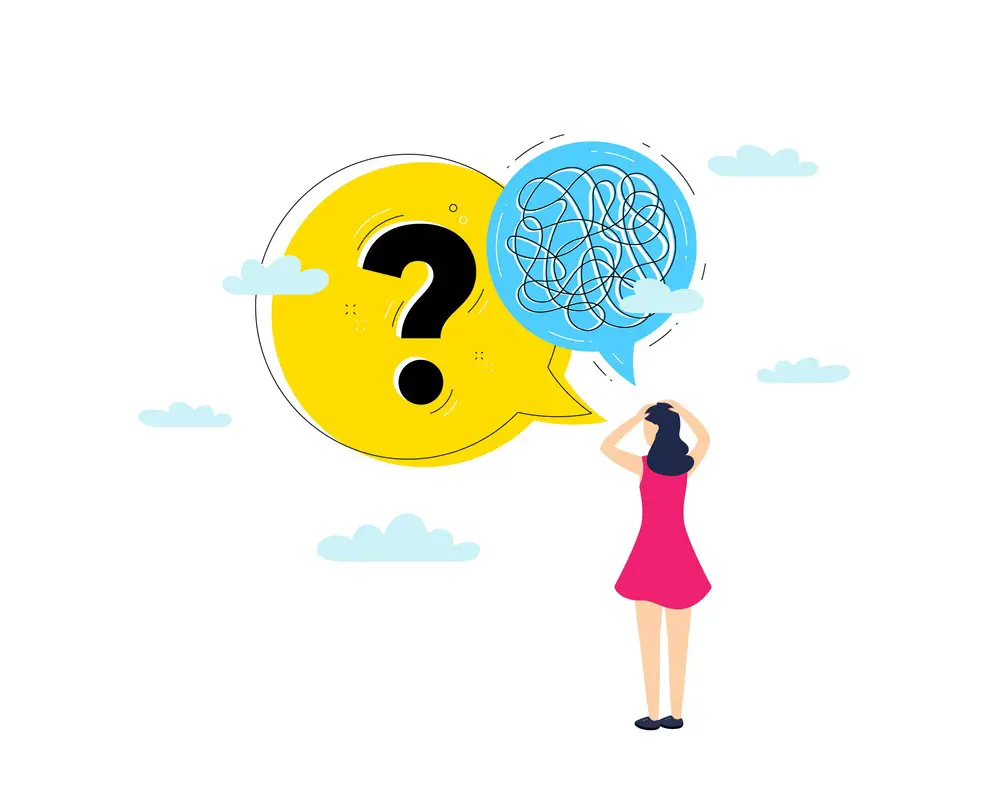
Is generalized anxiety disorder considered neurodivergent?
No, generalized anxiety disorder (GAD) is not considered neurodivergent. While it is a mental health disorder, anxiety disorders like GAD are emotional responses to stress or perceived threats affecting people with or without neurodivergent conditions.
How is ADHD related to neurodivergence?
ADHD (Attention Deficit Hyperactivity Disorder) is a neurodevelopmental disorder that falls under the neurodivergence category. It is characterized by symptoms such as inattention, impulsivity, and hyperactivity. People with ADHD may have different thought patterns, behaviors, or learning styles than neurotypical individuals.
Are BPD and PTSD neurodivergent conditions?
Borderline Personality Disorder (BPD) and Post-Traumatic Stress Disorder (PTSD) are considered mental health disorders rather than neurodivergent conditions. While they can affect a person’s thought patterns and behaviors, they are not classified as neurodivergences like ADHD or autism.
What are common examples of neurodivergent traits?
Common examples of neurodivergent traits include:
- Difficulty with social interaction or communication, such as in autism spectrum disorder
- Hyperactivity and impulsivity, as seen in ADHD
- Nonlinear thinking and problem-solving, often associated with dyslexia
- Difficulty with executive functions like planning and organization, common in ADHD and autism
Do anxiety and depression fall under neurodiversity?
No, anxiety and depression are not considered part of neurodiversity. While they are mental health disorders that can co-occur with neurodivergent conditions, they are not in themselves neurodivergence.
How is OCD connected to neurodivergence?
Obsessive-Compulsive Disorder (OCD) is a mental health disorder that may co-occur with neurodivergent conditions but is not considered a neurodivergence. OCD involves recurrent, unwanted thoughts (obsessions) and compulsive behaviors (compulsions) that can interfere with daily life. Although the relationship between OCD and neurodivergence is not fully understood, it is essential to recognize their distinct classifications.
Recognizing the Indicators: When Professional Therapy May Be Necessary
Understanding when to seek professional therapy can be complex, often blurred by misconceptions and societal stigma. The following indicators can serve as signs that it may be beneficial to consult a mental health professional.
- Emotional Instability: Fluctuating moods that consistently impact your quality of life warrant attention. This instability can negatively affect relationships and job performance.
- Sleep Irregularities: Struggles with insomnia or excessive sleeping could indicate emotional or psychological issues requiring professional intervention.
- Social Withdrawal: Consistently avoiding social interactions, even with close family or friends, can be a symptom of deeper emotional challenges.
- Attention Deficit: A sudden or persistent inability to focus on tasks could be a symptom of underlying stress or other mental health conditions.
- Persistent Anxiety: Ongoing, intrusive worries that interfere with daily activities should not be overlooked.
- Recurrent Problems: Revisiting the same issues or conflicts, despite previous efforts to address them, suggests that a deeper examination is needed.
- Loss of Interest: If activities that once brought joy now seem uninteresting or burdensome, this could be a significant warning sign.
- Self-Examination: The very act of questioning whether you should seek therapy is an important indication. Your intuition can be a reliable guide.
Given the complexity of emotional and psychological well-being, recognizing even one of these indicators should prompt consideration of professional assistance. A trained therapist can offer the necessary tools to help you navigate life’s challenges more effectively.
Navigating Life’s Labyrinths: The Man Behind the Words, Jacob Maslow
Hey there, I’m Jacob Maslow. You could say I’ve seen mental health’s sunnier and stormier sides. I pop a Lexapro every day to keep my clouds at bay and as a commitment to understanding the terrain. Yes, I’m a veteran in the therapy chair, and I wear that badge with no small amount of pride.
I’ve waded through some turbulent waters, particularly involving my ex-spouse, a card-carrying narcissist who wreaked havoc in more lives than mine. From courting community leaders to launching spiteful campaigns against them, she’s a case study in narcissism. Her refusal to abide by court-ordered shared custody has been like dragging an anchor through those waters, but I keep sailing.
Our two amazing kids are the real victims of this ongoing court battle. Once upon a time, our post-divorce life was fairly harmonious; we even maintained two households. But that chapter closed, and I’ve found myself writing new ones—some quite painful but always illuminating.
I put on my walking shoes and trek for miles daily to clear my head. Those long walks have become my moving meditation, a ritual to reconnect with myself.
Why do I write? I craft these articles about mental health and narcissism because I’ve lived through the chaos and know the struggle is real. If my words can serve as a lighthouse for others caught in similar storms, then every keystroke is worth it. I also run a legal site dedicated to helping those whose ex-spouses weaponize children and ignore court orders. Trust me, you can rise above your challenges. I’m living proof.
- Stress Management: What is the Relationship Between Stress and Addiction? - June 28, 2024
- Exploring Techniques to Maintain a Healthy Lifestyle without Drugs - May 28, 2024
- How Acupuncture Helps Treat Chronic Fatigue Syndrome - May 28, 2024
This site contains affiliate links to products. We will receive a commission for purchases made through these links.


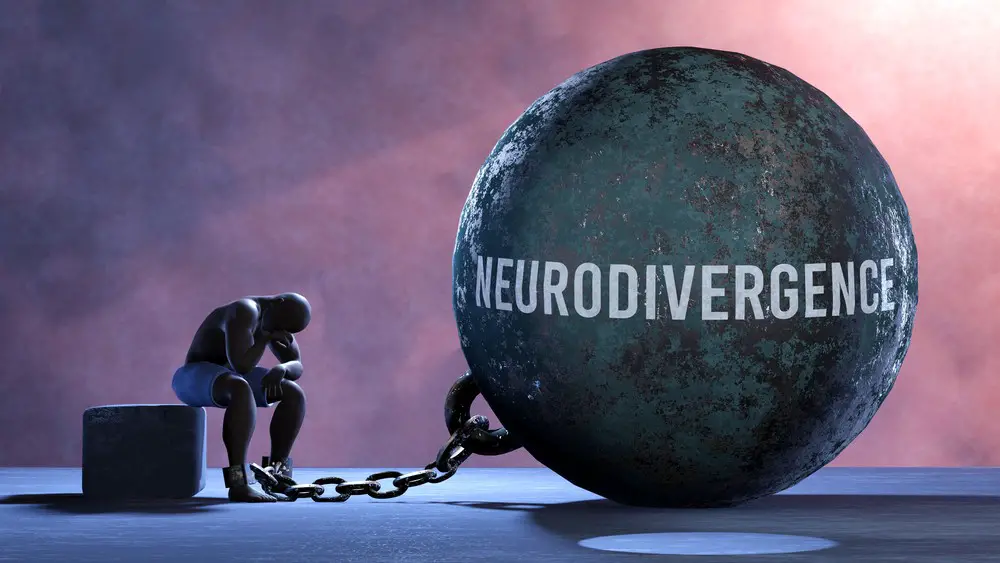 Understanding Neurodivergence
Understanding Neurodivergence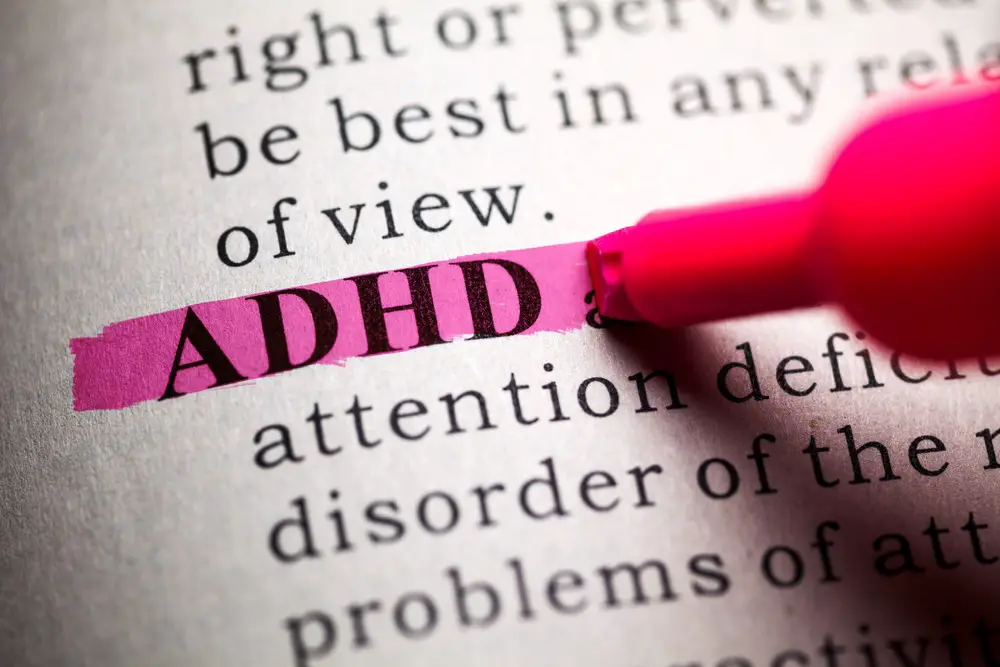 Attention Deficit Hyperactivity Disorder
Attention Deficit Hyperactivity Disorder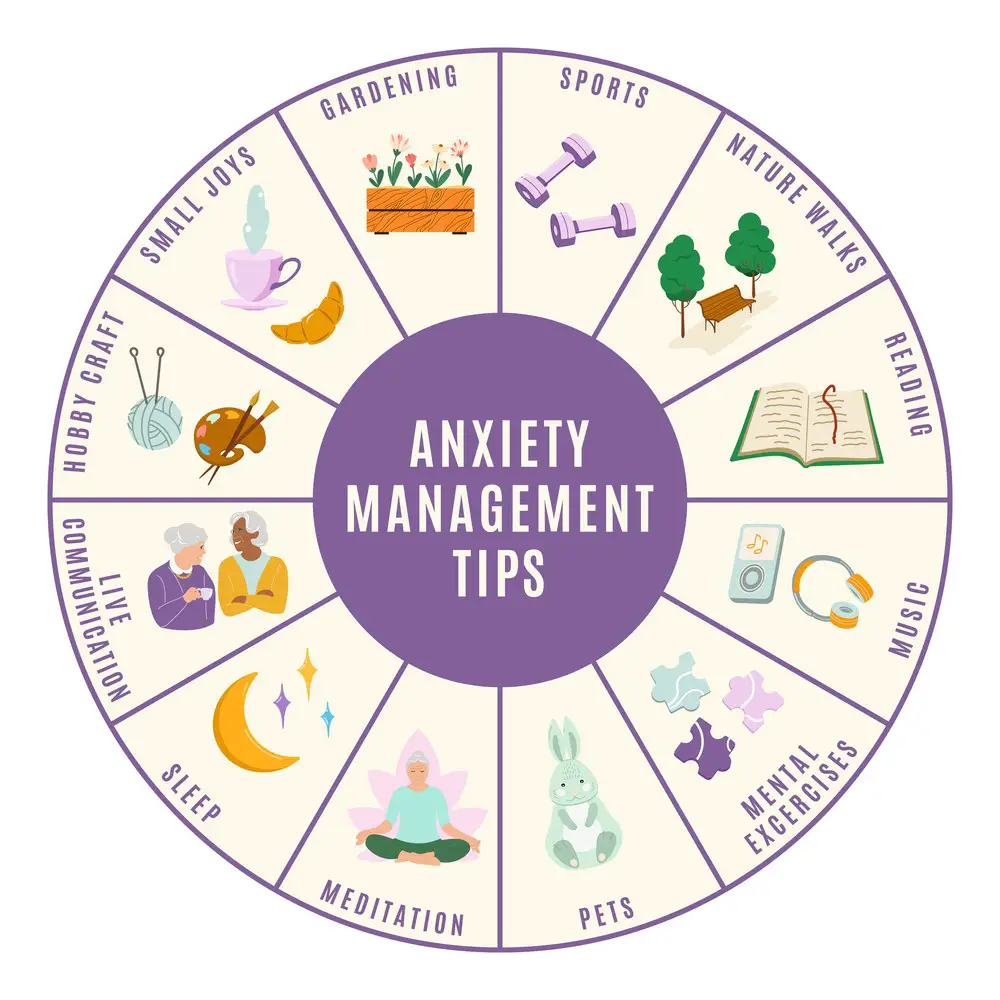 Anxiety as a Neurodivergent Condition
Anxiety as a Neurodivergent Condition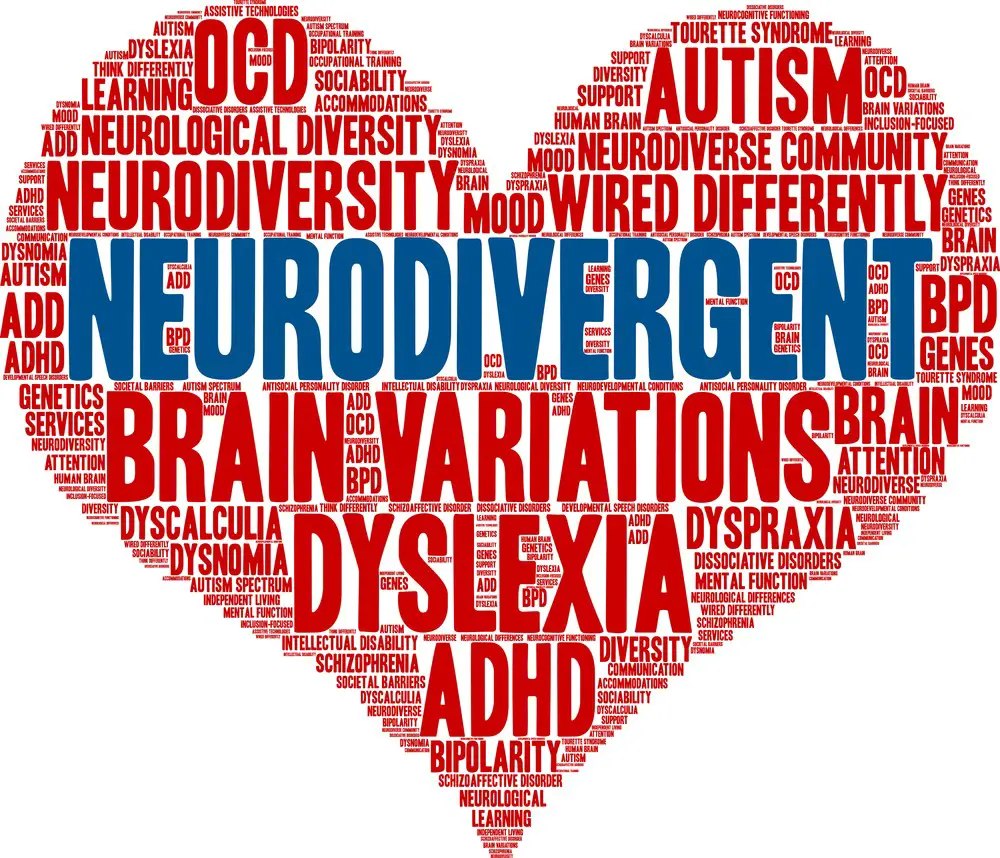 Challenges and Abilities of Neurodivergent Individuals
Challenges and Abilities of Neurodivergent Individuals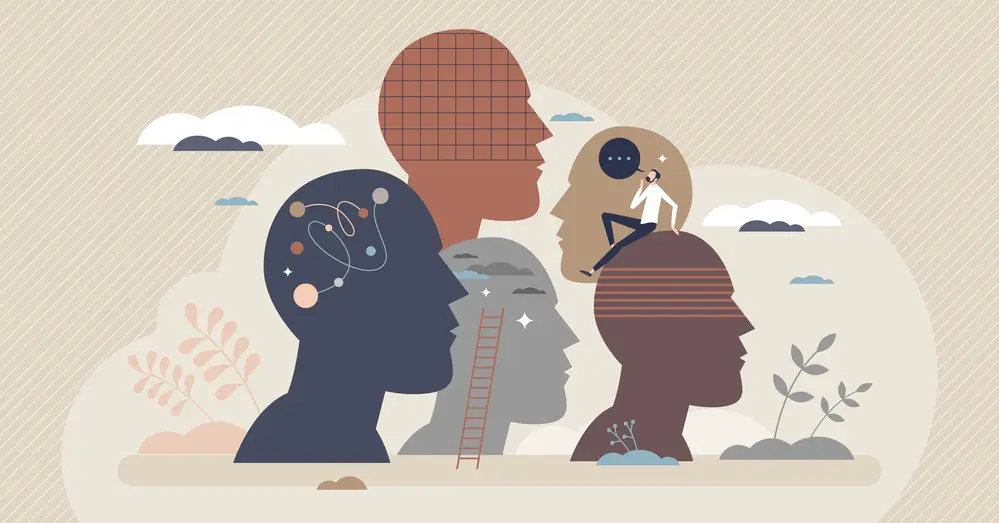 Neurodiversity Movement Today
Neurodiversity Movement Today

